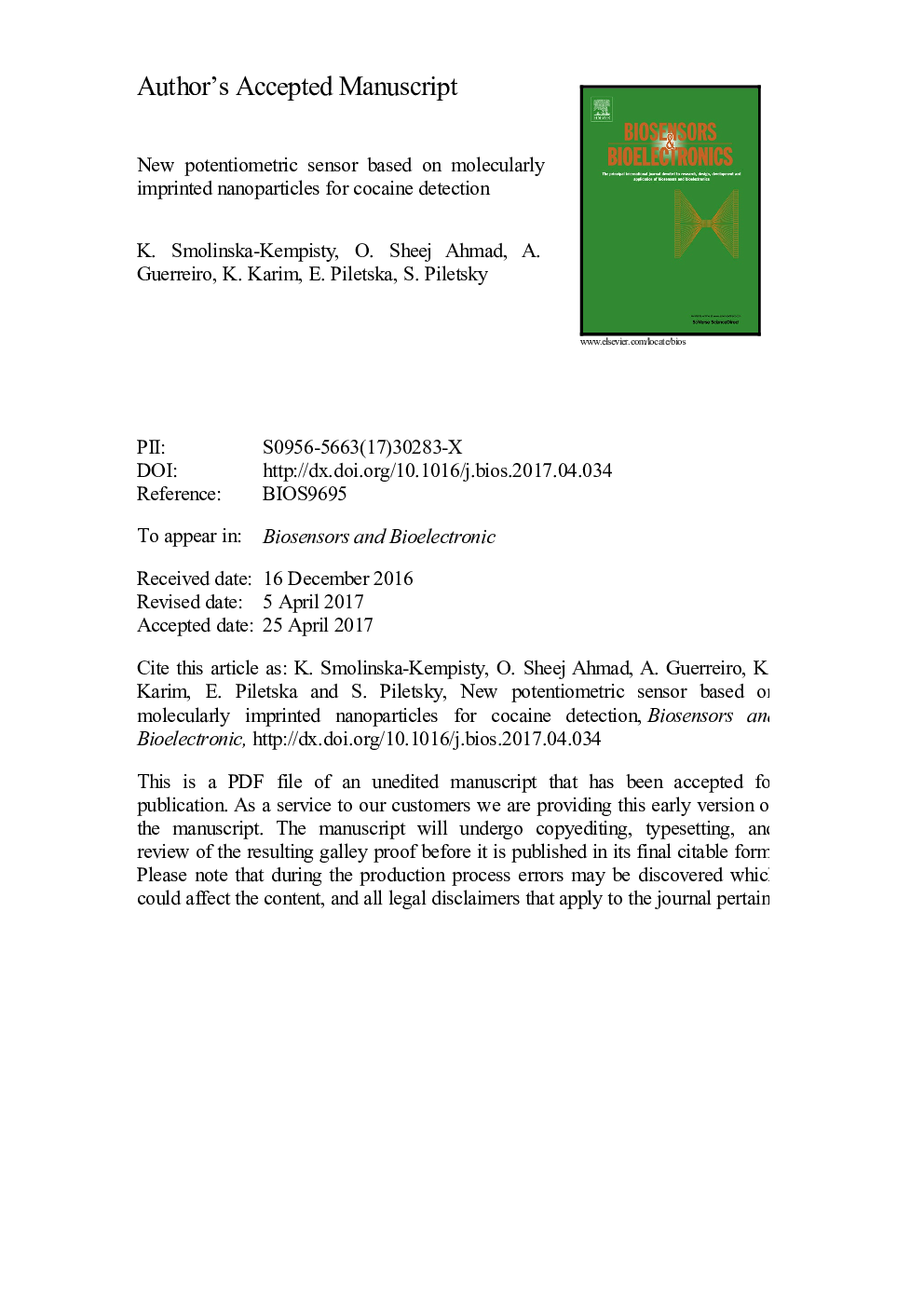| Article ID | Journal | Published Year | Pages | File Type |
|---|---|---|---|---|
| 5030839 | Biosensors and Bioelectronics | 2017 | 18 Pages |
Abstract
Here we present a potentiometric sensor for cocaine detection based on molecularly imprinted polymer nanoparticles (nanoMIPs) produced by the solid-phase imprinting method. The composition of polymers with high affinity for cocaine was optimised using molecular modelling. Four compositions were selected and polymers prepared using two protocols: chemical polymerisation in water and UV-initiated polymerisation in organic solvent. All synthesised nanoparticles had very good affinity to cocaine with dissociation constants between 0.6Â nM and 5.3Â nM. Imprinted polymers produced in organic solvent using acrylamide as a functional monomer demonstrated the highest yield and affinity, and so were selected for further sensor development. For this, nanoparticles were incorporated within a PVC matrix which was then used to prepare an ion-selective membrane integrated with a potentiometric transducer. It was demonstrated that the sensor was able to quantify cocaine in blood serum samples in the range of concentrations between 1Â nM and 1Â mM.
Related Topics
Physical Sciences and Engineering
Chemistry
Analytical Chemistry
Authors
K. Smolinska-Kempisty, O. Sheej Ahmad, A. Guerreiro, K. Karim, E. Piletska, S. Piletsky,
